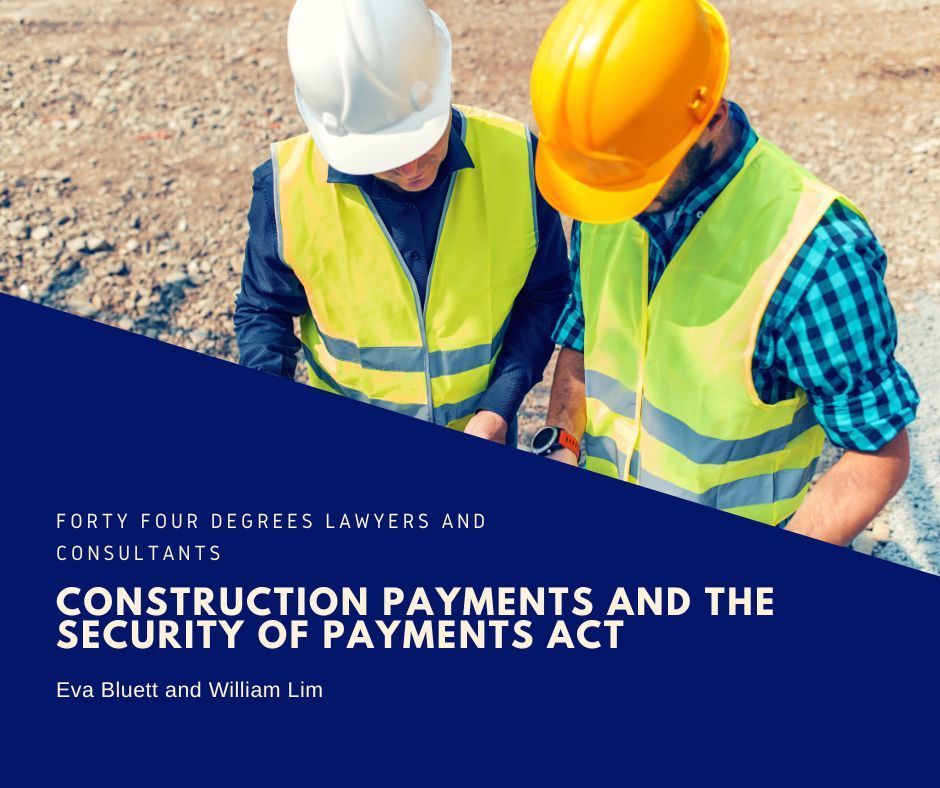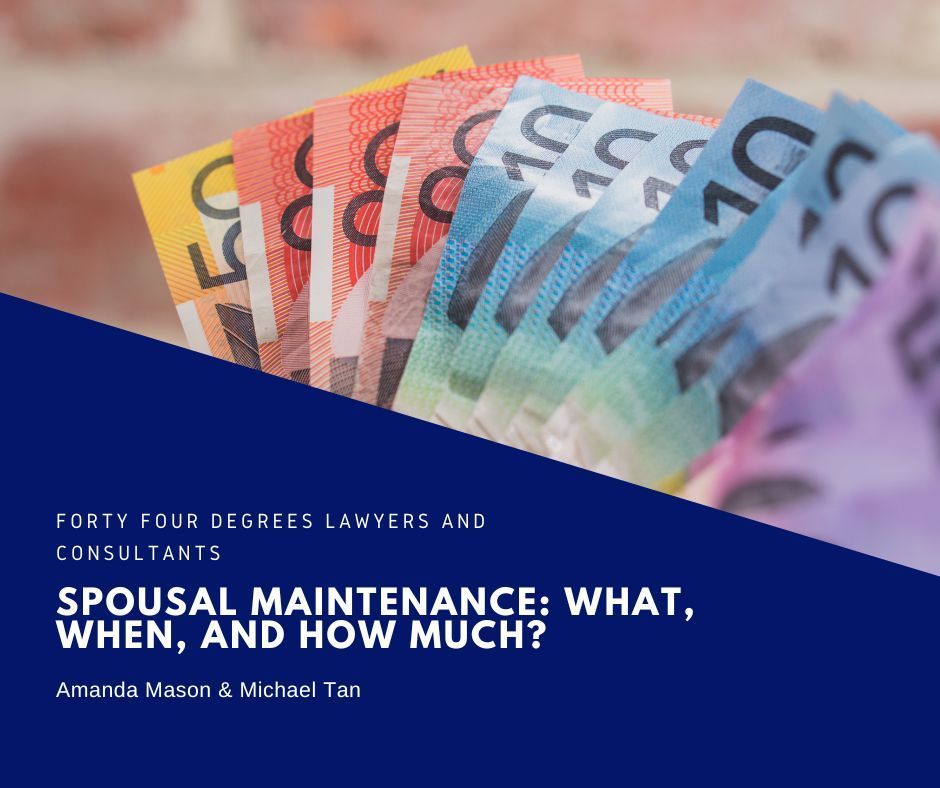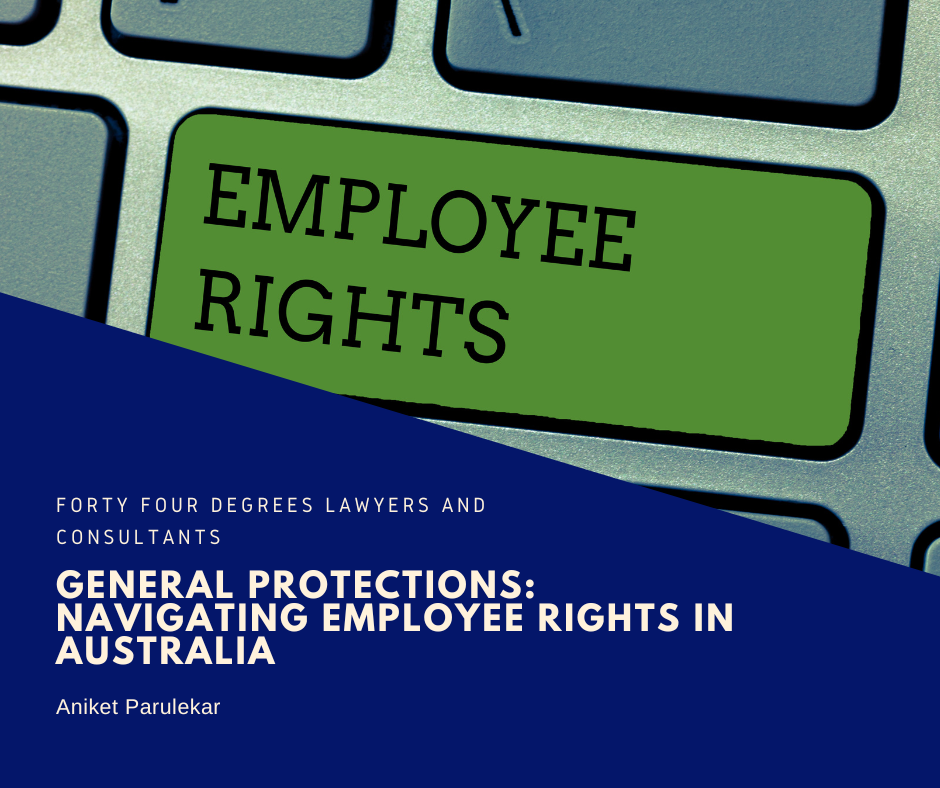Double Duty
Nicole Wilson • Jun 01, 2020
Breakdown of the Part 4A of the Duties Act 2000 provisions
Most people know stamp duty is payable to the State Government when a property is purchased. What is not so readily understood is that where Victorian land is transferred to a person or entity other than the purchaser named in the contract, the transaction may be regarded as a sub-sale of the land and potentially subject to double duty. Part 4A of the Duties Act 2000
sets out the provisions relating to sub-sales of land. Broadly speaking, the sub-sale provisions may apply to transfers where:
• additional consideration is provided for the transfer right;
• land development occurs before the transfer right; or
• land development occurs between the time when an option is granted in respect of the land and the time when a transfer right is obtained.
Transfers involving additional consideration – Division 2, Part 4A
To be assessed for double duty within the provisions of Division 2, four criteria must be met:
1. The vendor enters into a contract to sell or transfer the property to another person (“the first purchaser”);
2. A person other than the first purchaser (“a subsequent purchaser”) obtains the right to have the property or any part of it transferred, on completion of the sale contract, to the subsequent purchaser (“the transfer right”);
3. The subsequent purchaser or an associate of the subsequent purchaser gives or agrees to give additional consideration in order for the subsequent purchaser to obtain the transfer right; and
4. The vendor transfers the property or any part of it to a subsequent purchaser.
The giving of additional consideration by the subsequent purchaser or their associate to obtain the transfer right is the key to triggering this particular provision. Where this occurs, duty will be charged firstly on the dutiable value of the sale contract as if it had been completed by the first purchaser, then on the dutiable value of the subsequent transaction by which the subsequent purchaser obtain the transfer right and finally, the dutiable value of any other subsequent transactions.
Consideration is a defined term under section 32A and includes both monetary and non-monetary consideration. There are some exclusions for certain costs, but purchasers should be most mindful in relation to non-monetary consideration. An example of a transaction which may be caught is an agreement to take over a loan.
Division 2 also covers what are termed “parallel arrangements”. A parallel arrangement is defined as an arrangement entered into by a subsequent purchaser or an associate before, at the time or within 12 months after the subsequent purchaser obtains a transfer right under a sale contract, under which the first purchaser or an associate of the first purchaser is required to construct, or to arrange for the construction of, improvements to the property the subject of the sale contract for consideration.
For example, where a builder/developer buys land but before settlement on sells it to a home buyer and at around the same time enters into a building contract with the home buyer that is tied to rights of the home buyer buying the land.
This is called a ‘parallel arrangement’ because the home buyer is taken to have given consideration to the builder/developer in order to obtain the right to buy the land. The land purchase is therefore considered a ‘sub-sale’ and duty is payable on both the purchase by the builder/developer and the purchase by the home buyer.
Transfers involving land development – Division 3, Part 4A
To be assessed for double duty within the provisions of Division 3, four criteria must be met:
1. The vendor enters into a contract to sell or transfer the property to another person (“the first purchaser”);
2. A person other than the first purchaser (“a subsequent purchaser”) obtains the right to have the property or any part of it transferred, on completion of the sale contract, to the subsequent purchaser (“the transfer right”);
3. After the sale contract is entered into, but before the property or any part of it is transferred, land development occurs in relation to the property or part; and
4. The vendor transfers the property or any part of it to a subsequent purchaser.
It is important to note that it is immaterial whether a subsequent purchaser obtains a transfer right by way of an assignment, nomination, novation or otherwise and there can be multiple transactions caught.
The occurrence of land development between the first sale contract being entered into and the property being transferred is the key element that triggers this particular provision. The term “land development” is defined to mean any one or more of the following in relation to land:
a. preparing a plan of subdivision of the land or taking any steps to have the plan registered under the Subdivision Act 1988;
b. applying for or obtaining a permit under the Planning and Environment Act 1987 in relation to the use or development of the land;
c. applying for or obtaining a permit or approval under the Building Act 1993;
d. doing anything in relation to the land for which a permit or approval referred to in (c) above would be required;
e. developing or changing the land in any other way that would lead to the enhancement of its value.
As you can see from the above, the definition of land development makes it very easy for a double-duty event to occur.
If such an event occurred, duty will be charged separately on:
• The dutiable value of the sale contract as if it had been completed by the first purchaser.
• The dutiable value of the subsequent transaction by which the final subsequent purchaser obtained the transfer right.
• The dutiable value of any other subsequent transactions, if any (that is, any other transfers, assignments, nominations, novation of the transfer right occurring between the contract and final subsequent transaction).
It is therefore very important to obtain advice to ensure that any nomination under a contract of sale takes place before there has been any “land development” of the land being purchased.
Transfers involving options – Division 4, Part 4A
To be assessed for double duty within the provisions of Division 4, four criteria must be met:
1. The vendor grants an option to, or is granted an option by, another person (“the first purchaser”);
2. A person other than the first purchaser (“a subsequent purchaser”) obtains the right or assumes the obligation to enter into a contract of sale of the property or any part of it with the vendor, or to have the property or any part of it transferred to the subsequent purchaser (“the transfer right”);
3. After the option is granted, but before the property or any part of it is transferred, land development occurs in relation to the property or part; and
4. The vendor transfers the property or any part of it to a subsequent purchaser.
It is important to note that the subsequent purchaser can obtain or assume a transfer right on conjunction with the first purchaser and this division will still apply. Also, it is immaterial whether a subsequent purchaser obtains a transfer right by way of an assignment, nomination, novation or otherwise and there can be multiple transactions caught.
An “option” is defined to mean:
a) a right granted by an owner of property to another person, that entitles that other person to whom the right is assigned, to require the owner to –
i. enter into a contract of sale of the property to that other person or a subsequent assignee of that other person; or
ii. transfer the property to that other person or a subsequent assignee of that other person (In other words, a CALL OPTION); or
b) a right granted to an owner of property by another person, that entitles the owner to require that other person, or a person approved by the owner and nominated by that other person to –
i. enter into a contract to buy the property from the owner; or
ii. accept a transfer of the property from the owner (In other words, a PUT OPTION).
The occurrence of land development between the option being granted and the property being transferred is the key element that triggers this particular provision. In such circumstances, duty will be charged separately on:
• The dutiable value of the option.
• The dutiable value of the subsequent transaction by which the final subsequent purchaser obtained the transfer right.
• The dutiable value of any other subsequent transactions, if any (that is, any other transfers, assignments, nominations, novation of the transfer right occurring between the contract and final subsequent transaction).
Nicole Wilson
is a property and litigation specialist at Forty Four Degrees Lawyers and Consultants. She has an extensive background in commercial disputes and advisory work.
Contact Us
We’re an Australian Law Firm promoting a nuanced, personal touch. We have the skills you need to resolve your case quickly and with a positive outcome. Our straight talking team stays close to simplify what is most often a complicated process. We help individuals and businesses with technology and startup law, property law including conveyancing and leasing, commercial law, civil litigation, wills, estates, bankruptcy, insolvency, criminal law, and professionals facing investigations and charges from their regulatory body.
We have a connected network of talented lawyers in Melbourne CBD, Dandenong, Ballarat, and Ivanhoe East.
Fill out the form or call us on 1300 892 237.
Thank you for contacting us.
We will get back to you as soon as possible
We will get back to you as soon as possible
Oops, there was an error sending your message.
Please try again later or call us on 1300 892 237.
About Us
We do business your way.
203/ 50 Market St, Melbourne VIC 3000
50 Lydiard St South
Ballarat Central VIC 3350











